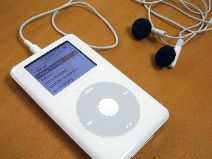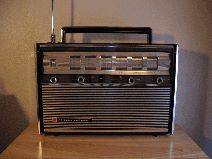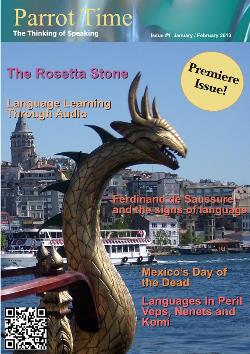
|
Drawbacks  An iPod, which can be used to play audio lessons As has already been mentioned, the first major drawback to learning by audio is the slowness in building up a large vocabulary. Audio courses have to go slow, by their very nature... they are completely linear and non interactive in that they can't be sped up or slowed down depending upon the students capabilities. You also can't just casually find just the words you will need. The lesson will go over all of them, regardless of their usefulness to you. For example, if you are planning to be studying economy in Barcelona, you probably don't need to know the names of animals. Ironically, you are unlikely to learn many of either of those categories, since the course will be telling teaching you about hotels and museums. And that brings us to the second point: specialization. Unless you have access to a comprehensive set of audio lessons with thousands and thousands of hours of material, you aren't likely to pick up what you are focusing on. For example, one person might be trying to learn how to get around in the city while another person will be trying to carry on conversations with their family and a third person might be wanting to learn how to chat up foreign women on the internet. There is no way you are going to be able to sort through and replay just what you want on your pocket MP3 player. You can direct your learning using other learning methods like books, software, and websites. Even a phrase book gives you more direct control. Since they can be used just about anywhere... they might seem as a perfect solution to people that feel they don't have the time to learn a new language. Of course, the most obvious drawback to this method is the lack of spelling knowledge. You might know how to pronounce words and phrases, but you still will have a very hard time handling anything as simple as a menu. In some languages, there won't be much of a problem if the spoken and written forms are similar to what the student is used to. However, if you are learning a language with a very different sound system, like Welsh, or one with an entirely alphabet, like Russian or Hebrew, then the audio course will leave you clueless on basic literacy. Some audio courses do come with some written material, but it usually appears more of an afterthought to the course. It will also leave you very deprived in terms of grammar. While you should be able to learn some basic grammar rules through the variants in the phrases, you won't know how those rules are really defined. For example, you might learn to say "Come stai?" to a person in Italian yet at other times be taught to say "Come sta?", you wouldn't be sure when to use which. And what about a language that has nouns that are declinable? How do you learn which forms to use when if you have just learned the word "car" in three different forms, depending on if it's a subject, direct object or indirect object? And don't even think about verbs, with all their forms and tenses. Without basic grammar knowledge, you will be hard pressed to create new phrases beyond the most basic levels. Broadcasts  An older portable shortwave radio Lessons on LPs, cassettes or CDs are not the only kind of audio learning. Dating back to the 1920s, people have broadcast news and information to others all around the world using shortwave radios. The modern day British Broadcasting Corporation (BBC) began as "BBC Empire Service" in 1932 for broadcasting in shortwave. Early broadcasts were largely to gain a larger audience for normal radio broadcasts which were limited by their range (shortwave refers to a transmission method which produces, you guessed it, shorter and tighter wavelengths that could be bounced off the atmosphere to reach places further away). After WWII, shortwave listening became very popular, and many countries were not only broadcasting in many languages but also using such broadcasts to help students listen to other languages, music, and cultural information. BBC was perhaps the biggest broadcaster, transmitting news to many countries in their own languages as well as courses in English. One of the main reasons English is so widespread now is because of these language lessons. Podcasts With the rise of the internet, broadcasting via shortwave has become almost obsolete. Many services have reduced or ceased entirely their broadcasts, moving instead to the internet, using streaming radio or "podcasts". A podcast (named for the device for playing MP3s, the iPod, and "-cast" from "broadcast") is a serialized audio program which can be of any content. Since buying audio courses like Pimsleur can be very expensive (the French I course from Pimsleur costs $345 on CDs, $120 on MP3s), podcasts have become a very popular alternative. The content and methods of these podcasts will vary greatly, of course, since just about anyone with a microphone and recording software can create their own. They are also likely to have most of the same drawbacks as conventional audio courses. One advantage, however, is that since they are obtained from the internet, they are likely to have some kind of accompanying interactive materials. In general, audio courses are a good way to get a person listening to a new language and give them some basic phrases and words. Since they can be used just about anywhere, such as in your car or your portable device, while you are doing something else, they might seem as a perfect solution to people that feel they don't have the time to learn a new language. People who are intent on becoming fluent in a language, though, will find that impossible relying solely on audio courses. They are simply too limiting in depth and content to provide a student with all they require. They should be used as an introduction and perhaps as a refresher for hearing the language while other materials are used as the primary method of learning. An hour with a book course could easily surpass several hours with an audio course in terms of actual material learned. We hope you enjoyed this first article in this series of language learning methods. We would like your thoughts and comments on the article and your experiences with audio courses. Please write to us at parrottime@parleremo.org. |
| Language Learning Methods - Audio | ||||||
| Writer: | Erik Zidowecki | |||||
| Images: | ||||||
| ||||||
All images are Copyright - CC BY-SA (Creative Commons Share Alike) by their respective owners, except for Petey, which is Public Domain (PD) or unless otherwise noted.
comments powered by Disqus



















